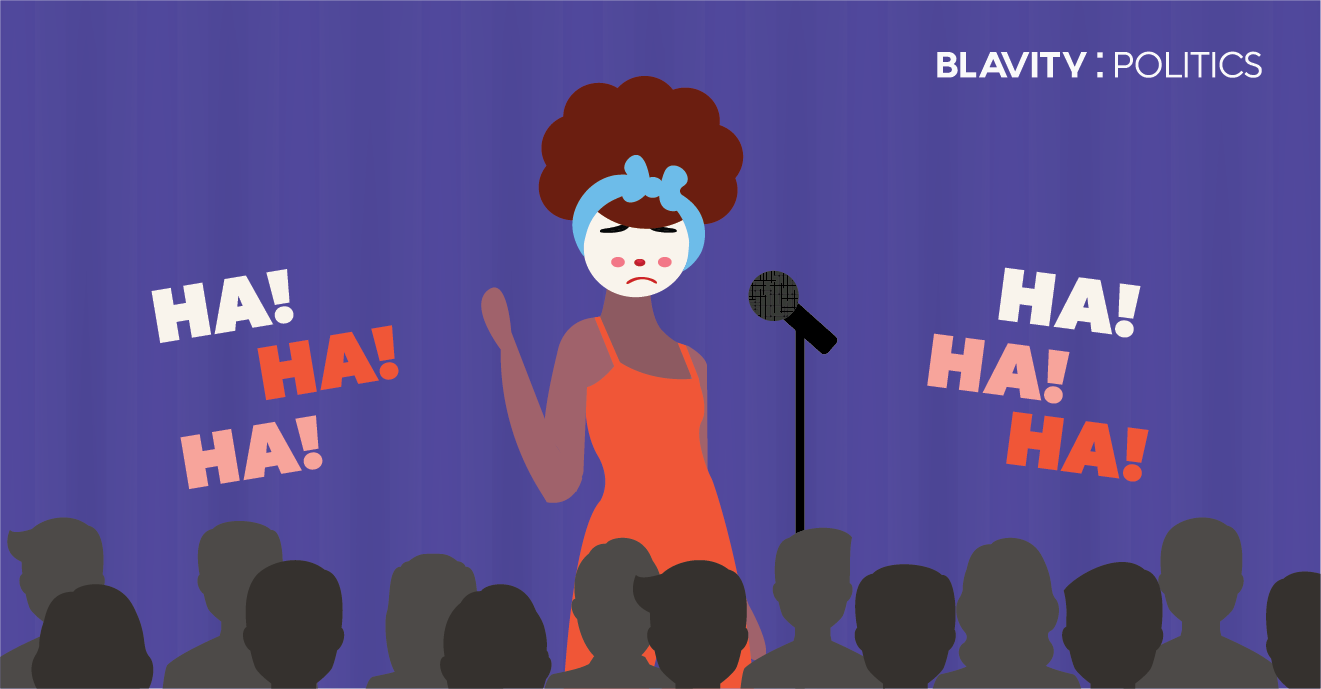This is the weekly column written by Blavity:Politics Senior Editor Kandist Mallett.
Court jesters, possibly the world's first stand-up comedians, were some of the most powerful people to hold court. A jester was able to do something that would get the noblest of blood killed: He was able to mock the king. It was through wit and humor that jesters were able to speak truth to power and call out the hypocrisies of the kingdom without facing the guillotine.
Comedy as an art form has long been seen as a tool for one to speak their truth, make people think and, most importantly, make them laugh. In his most recent stand-up special, “Sticks and Stones,” Dave Chappelle continued his anti-trans shtick despite criticism for his last several stand-up specials. The jokes, which don’t deserve to be quoted, highlight how often comedians use “anti-wokeness” to cover their own bigotry. Ricky Gervais also had a comedy special where he spewed anti-trans jokes on Netflix. Actually, it’s quite a trend among popular comedians with highly paid Netflix specials to make trans and queer people the punchline of a joke.
There is nothing edgy about taking your position of power and using it as a way to terrorize and demean someone's identity, to spew the same type of hate that they are forced to hear from society as a whole. At that point, when comedians are making millions for a comedy special, they are no longer the jester but have become the king. And kings aren’t funny, at least not intentionally.
The idea that society has gotten too sensitive, or that it is okay to just laugh at jokes that deny trans women their womanhood, is neglecting to see how what we laugh at is correlated to how trans women are treated in our society. When comedians go on stage and misgender trans women, what they are doing is feeding into society’s message that being trans is wrong, that being trans is something that should be laughed at. It’s not a joke that 16 trans women have been murdered in 2019.
In essence, what we’re seeing with the fall of comedian legends like Dave Chappelle and Ricky Gervais is more a commentary on how we have evolved as a culture, while certain individuals have remained stagnant.
In the last few years, comedy’s superstars have spent lots of stage time griping about how millennials have killed comedy, how our P.C. culture has made us unable to endure jokes. In 2015, Jerry Seinfeld went as far as saying he would no longer play college campuses because of “creepy P.C.” culture.
Is it that Millennials and Gen-Zers are too woke? Or is the issue perhaps an aging way of seeing the world that no longer belongs on popular stage? (Not that it ever did.) There are far edgier and funnier things being said on Twitter by those in the Black trans and queer community than any of the basic hate in these stand-up specials.
It would make sense that the jesters of society, the truth sayers, are not the ones making millions for their stand-up specials, but rather those being ridiculed by these very comedians.

